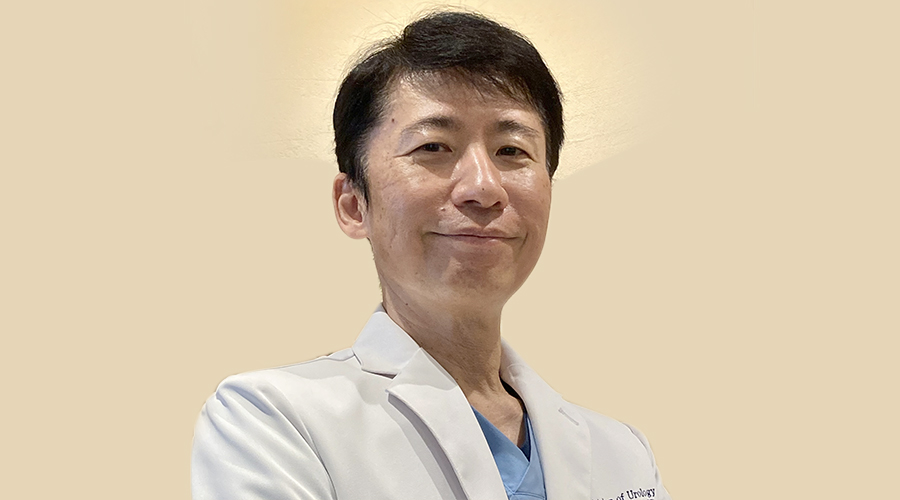
Shizuka Iida, MD, Ph.D, Chief Director, Iida Clinic
The leading hemodialysis centers have been providing specialized services to the patients even during the challenging times of the pandemic. These hospitals leave no stones unturned to ensure that the patients are provided with the best healthcare and treatment facilities. One such noteworthy super specialty hospital that has earned a stellar reputation for delivering the finest services is none other than Iida Clinic. Iida began its journey in 1969 when former President Osamu Iida, M. D., Ph.D. opened the Iida Urological Clinic in Omuta city to establish the region’s first hemodialysis center. In 1971, Dr. Osamu Iida started the region’s first hemodialysis center providing medical care for patients associated with either urological disease or chronic renal failure. The veteran is a pioneer in hemodialysis and has worked for nearly 50 years in the industry.
Later in 2006, the current director and chief urologist, Shizuka Iida, MD, Ph.D., joined the team as a deputy director and has contributed to the development of the clinic centered on laser-based endourological surgery. In 2009, his younger brother Shuji Iida, MD, Ph.D., joined as a deputy director and chief nephrologist to take care of hemodialysis patients. The addition of full-time urology and nephrology specialists in the Iida Clinic has strengthened its medical system to the core.
The 21st Century Clinic
“We are a “21st Century Clinic” with the latest medical technology and facilities available, which gives our patients access to excellent care,” asserts Shizuka.
Nowadays with the spread of the internet, patients can easily obtain information about their illnesses. But unfortunately, there is no guarantee that they will get accurate information about their disease by believing in the wrong information can delay the treatment. “Therefore, we are constantly striving to maintain the latest medical standards by attending domestic and international congresses, exchanging opinions with other physician communities, and presenting our treatment results,” says Shizuka.
Furthermore, the medical and clerical staffs are trained similarly to provide the best medical services to their patients. Shizuka believes that along with the latest medical equipment, it is also important to constantly update the skills of each staff to provide the best medical services to individual patients and families.
He adds, “Of course, it goes without saying that we will not cut corners in terms of hospitality. We also pay close attention to medical safety. In addition to normal infection control, we have set up two negative pressure booths in the hemodialysis unit in preparation for the spread of COVID-19 infection.”
Both the urologists and nephrologists work together in the clinic to scrutinize patients referred due to abnormal screening from the perspective of surgery and internal medicine.
Furthermore, when more advanced medical care is required, Iida clinic provides reliable medical services to patients through cooperation with the core hospitals. The clinic also introduced electronic medical records and image filing systems from an early stage and is constantly updating medical equipment such as lasers used for surgery to meet international standards. Headquartered in Japan, Iida clinic has also hired English-speaking staff to respond smoothly to foreign patients. Indeed, before the pandemic, the clinic accepted hemodialysis patients from overseas annularly.
First to Launch a Smart Clinic
Iida Clinic is on a mission to manage every patient seriously and provide appropriate medical services to them. It is not only to make full use of the latest technology to get the highest clinical outcome with the shortest hospitalization. The clinic is also environmentally friendly. In November 2014, the team built a new clinic to accommodate the expansion of the business and has a total area about 1.5 times bigger than the previous clinic and is structured to be a ‘Smart Clinic’ that consumes less electricity and water. The clinic also reuses discarded water used during the dialysis effectively by its energy-saving system which includes creating hot water and electricity via the solar system, rooftop greening, and LED illumination. Shizuka affirms, “We were the first to launch a smart clinic, and in 2015, the Ministry of Economy, Trade, and Industry of Japan gave us the Energy Conservation Grand Prize in recognition of its energy conservation effect.”
Continues Shaping the Future of Healthcare
According to Shizuka, in Japan, the birth rate is declining and the aging population is increasing more than ever and it will be necessary to provide advanced and safe medical services to the elderly in the future. Shizuka believes that in future hemodialysis care, it is necessary to combine exercise therapy and appropriate nutritional management guidance by a dietitian to prevent decreasing the ADL such as locomotive syndrome in the patients.
Today, Iida Clinic regularly measures the amount of extracellular fluid volume, muscle, and fat volume in the body by using InBodyTM (multi-frequency bioelectrical impedance analysis system) for dialysis patients and incorporating exercise therapy using exercise bikes and tube training during hemodialysis to prevent muscle weakness. The clinic provides both medical and surgical management for patients with lower urinary tract symptoms (LUTS) and kidney stone disease. Especially, renal stones are one of the lifestyle-related diseases, and the number of patients is increasing in Japan as well as Western countries. Since renal stones are often associated with hyperuricemia and hyperlipidemia, guidance including dietary habits is extremely important for the prevention of recurrence. In other words, the prevention of urolithiasis also leads to the prevention of metabolic syndrome.
“In the future, we consider preventive medicine to be important, and intend to actively engage with patients in cooperation with our staff,” concludes Shizuka.
